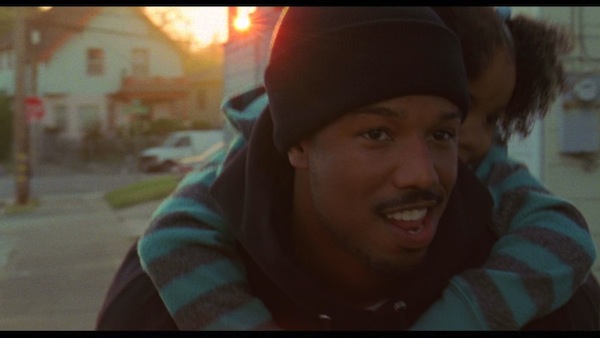 This week the Cape Breton Island Film Series presents Fruitvale Station, the true story of Oscar Grant III, a young man shot in the back and killed by a transit officer, while being detained on a subway platform.
This week the Cape Breton Island Film Series presents Fruitvale Station, the true story of Oscar Grant III, a young man shot in the back and killed by a transit officer, while being detained on a subway platform.
It happened on New Year’s Eve, 2008, in San Francisco. Twenty-two year old Oscar was lying on the ground, unarmed. The officer later reported that he thought he had pulled out his taser, and fired. There were lots of witnesses, and cellphone footage of the shooting went viral. The world was incensed, for a moment, but what could you say? What could you do? What sense could you make of all that senselessness?
Five years later, in his first film, director Ryan Coogler bravely tries to confront these impossible questions, and to bring the events of that day to light—if only to see. His film Fruitvale Station (starring Michael B. Jordan of The Wire and Friday Night Lights) imagines the last hours of Oscar’s life, every mundane detail, and the small personal victories and defeats the day may bring. And if you look closely, it’s full of them. This is all that Coolger does: he examines a single day in one man’s life, and shows us all the promise and agony of humanity contained within it.
However, that is simply there to see. Oscar is no hero, and the director does not set out to make a martyr of him either. His story is stripped bare of the symbolism that often distorts real meaning. By not pursuing answers, Coogler happens into truth: the truth that Oscar is just a young man, trying to do right by the people he loves, and failing himself like only a human truly can. He will build up our hopes and disappoint them, leaving us ambivalently wondering why this feels familiar, and then just as we’ve accepted him as no more or less screwed up than the rest of us, we will lose him.
There is nothing easy about going to see this film. The Boston Globe‘s Ty Burr called it “one of the most necessary films of the year”. That makes it sound more like homework, but maybe it should. Maybe there are films we need to see, topics we need to address, conversations we need to have. Maybe everything is not okay.
Coogler wants to hint at this, not demand it. His film is not angry, or brutal. Nor is it sentimental. He simply tells the story of a day a young man’s life.
When I was about 13, in a Sunday School class that more resembled a Socratic roundtable, my philosophically-inclined teacher asked, “What would you do if you knew this was your last day alive on earth?”
Oh, we had answers. We had all kinds of answers. You name it, what wouldn’t we do? Go scuba diving, jump out of a plane, experiment with drugs, eat junk food all day, pray, tell my family I love them.
You know, apocalyptic stuff. And finally when we’d exhausted our imaginations, our teacher said, “And how do you know that today is not your last day alive on earth?” Like a Buddhist monk, punctuating his point with a question mark.
He wasn’t suggesting we all take drugs and jump off a bridge. However we did provide a long list of last-minute activities that did not involve high-risk behaviour, and the point was simply this: that life was too short and too uncertain to wait on your dreams. That every day demanded our full attention and respect.
Fruitvale Station does just this. It acknowledges a day, and a man, and a life.
I strongly suggest we all do the same.
Hope to see you out this Thursday at 7pm for Fruitvale Station at Empire Theatres Studio 10!

